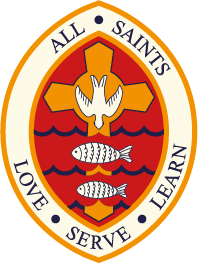Music
Head of Music: Mrs K Sidwell
The music curriculum has been designed to provide students with a balance of musical knowledge and musical skills to support students to improve their understanding of different genres of music through performing, composing, listening and appraising.
It is my intention to engage and inspire pupils to develop a love of music and their talent as musicians, and so increase their self-confidence, creativity and sense of achievement. As pupils progress though school they should develop a critical engagement with music, allowing them to compose, and to listen with discrimination and perform focusing on the inter-related dimensions of music.
Key Stage 3
We teach the KS3 curriculum in Year 7, 8 and 9 with topics in a specific order to build on the knowledge and skills learnt and developed in the previous topic focusing on the elements of music, following the national curriculum.
In Year 7 students cover the following topics:
- Elements of Music:Learning about the elements of music, understanding rhythm and written notation and using the elements of music to perform Samba music, and learning about the culture of Brazilian carnival.
- Pitch and Timbre: Understanding treble clef and learning to play the keyboard. Learning about the instruments of the orchestra and experiencing a live orchestra.
- Classical Composers: Learning about different classical composers and learning to play Fur Elise and other classic pieces on the keyboard.
- Composing to a Brief: Using the elements of music to compose music inspired by Benjamin Britten’s ‘Peter Grimes’ Opera.
- Musicals: Learn how the voice and songs are used in musicals.
- Chords and ukuleles: Learn about chord structures using the ukulele.
In Year 8 students cover the following topics:
- Composition: The Planets: students will develop their composition skills inspired by Gustav Holst’s Planet Suite.
- Computer Game Music: students will learn about music in popular culture and develop performing skills.
- Arrangements: students will learn how to create their own arrangements using the elements of music.
- Film Music: Students will learn to understand film music by playing film music, listening and appraising film music and using music technology to compose their own film music.
- Origins of Pop: Students will learn about some of the influences on modern pop music including Djembe drum beats, ukulele and singing.
In Year 9, students cover the following topics:
- Blues: Students will learn about the main features of Blues music and will create their own blues piece
- Popular Music: Students will learn about how music has changed from the 1950s to modern day developing their performing and listening skills
- Composing using music technology: Students will develop their music theory knowledge and then learn to use the notation program Sibelius, Chrome Song Maker and the software Mixcraft to created their own music composition.
- The History of Western Classical Music:Students will learn about the history of western classical music through a range of performing, composing and listening activities.
- Solo Performance: Students will spend time developing their individual practice and performance skills.
Key Stage 4
At Key Stage 4 students can choose to study Pearson Edexcel GCSE Music.
The course covers performing, composing and listening in a wide variety of musical styles – popular music, world music, and classical music. There are opportunities to use music technology such as sequencing and recording. The three course components are:
- Performance NEA (30% of final grade): 2 performances, a minimum of 1 solo (minimum 1 minute) and a minimum of 1 Ensemble piece (minimum 1 minute). Performances must be a total minimum of 4 minutes across the solo and ensemble pieces.
- Composing NEA (30% of final grade): 2 compositions, 1 to a set brief (minimum 1 minute) and 1 free composition (minimum 1 minute). Compositions must be a total minimum of 3 minutes.
- Appraising Exam (40% of final grade): Exam 1hr 45mins. Comprises of 4 areas of study with 2 set works each:
-
- Instrumental Music 1700–1820
- Vocal Music
- Music for Stage and Screen
- Fusions.
What can I do with a GCSE Music qualification?
GCSE Music is a good preparation for further musical study. Students may also wish to take a GCSE in Music simply because they enjoy music and want to further develop their skills and knowledge. Students may wish to go into a job where it is useful to have had experience of music or where they will need to use some of the skills developed during this course. These might include careers in the music industry, publishing, entertainment and teaching, or any job, which involves communication and expressive skills.
